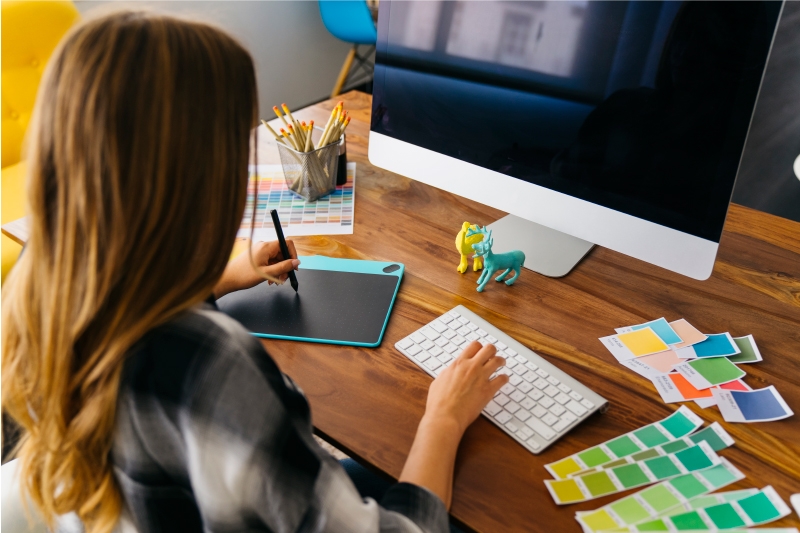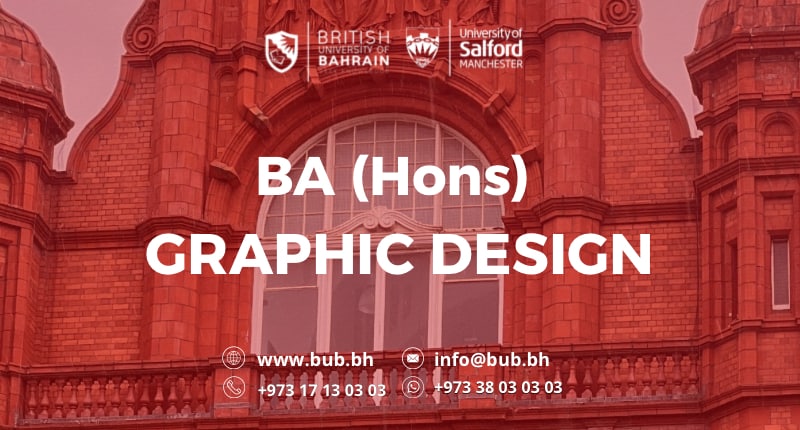BA (Hons) Graphic Design (International)
COURSE SUMMARY
On the course, you will learn to develop research informed and ideas-led solutions to increasing complex visual communication challenges. You have the opportunity to engage with an extensive range of creative processes of production, embracing both the digital and traditional processes of design. This course allows for the development of a broad range of specialist skills in areas such as typography, branding, illustration and image making, information design, signage and wayfinding, art direction, exhibition design, editorial design, service design, front-end web design, user experience and user interface design.
You will:
• Learn about the broad applications of graphic design, with the opportunity to focus and personalise your studies.
• Develop research informed and ideas-led solutions to increasing complex visual communication challenges.
• Embrace both the digital and traditional processes of design.
We support students to develop idea-led solutions, embracing the digital and at the same time engaging with traditional processes such as bookbinding and printmaking. Teaching is informed by research and academic staff contribute to subject networks, international conferences, exhibitions, books and papers. Student learning is facilitated through a range of workshops, seminars and lectures with additional support from a team of demonstrators.
The curriculum covers a broad range of specialist skills in both traditional and emerging areas such as design research methods, ideas generation and creative thinking, typography, branding, art direction, print-making, illustration and image making, bookbinding, photography, motion design, ambient media, interactive and multimedia design.
YEAR 1 - Foundation Year
The Foundation Year has been designed to bridge the gap between High School and effective Honours Degree Study. The modules focus on the development of key skills, including studying independently and collaboratively, critical thinking, academic and professional writing and quantitative techniques. A key focus of the Foundation Year is a collaborative project, where students will work together to develop solutions to real-world problems.
Modules include:
• Critical Reflection and Thinking
• Human Rights
• Arabic for Business (Arabic Speakers) / Critical Reading (Non Arabic Speakers)
• Multi-Disciplinary Project
• Digital Media Applications
• Creative Risk Taking
• The Modern History of Bahrain
YEAR 2
• Form and Content
• Critical and Professional Contexts 1
• Process and Application
• Critical and Professional Contexts 1 (Continued)
YEAR 3
• Graphic Design For…
• Critical and Professional Contexts 2
• Live Projects
• Graphic Design And…
• Critical and Professional Contexts 2 (Continued)
• Creative Collaboration
YEAR 4
• Design Practice
• Critical and Professional Contexts 3
• Negotiated Major Project
• Critical and Professional Contexts 3 (Continued)
• Statement of Graduation (Secondary School General Certificate).
• High School Diploma with an overall average of 75% over the last three years of high school (Years 10, 11 and 12).
• IELTS Academic Test Score of 5.5 minimum, with a minimum of 5.0 in each component.
For Direct Entry
IELTS:
6.0 with no element below 5.5 or equivalent.
A Level:
112 Points including Art and Design or Design and Technology.
BTEC National Diploma:
DMM Art and Design or Design and Technology.
International Baccalaureate:
31 Points including Art and Design or Design and Technology.
Applicants should be able to demonstrate knowledge and enthusiasm about design, and be keen to develop skills in all areas throughout all stages of the creative process.
We would like to see evidence of creative thinking, thorough research skills and experimentation with a range of media and ideas as well as the application of problem solving skills and evidence of critical judgement and analysis.
All applicants are required to bring a portfolio to interview, which should include examples of your working processes such as secondary and primary research, ideas generation and project development in sketchbooks and/or worksheets as well as final outcomes.
Your application statement should be succinct and personal to you. It should provide information that helps the admissions tutor determine the suitability of your application.
It should provide answers for questions such as:
• Why do you want to study Graphic Design..?
• When did you realise this was the subject you wanted to specialise in..?
• Who, within the field of creative practice, has produced work that you admire..?
• What do you hope to gain through degree level study..?
• How has your education and life experiences so far prepared you for degree level study..?




